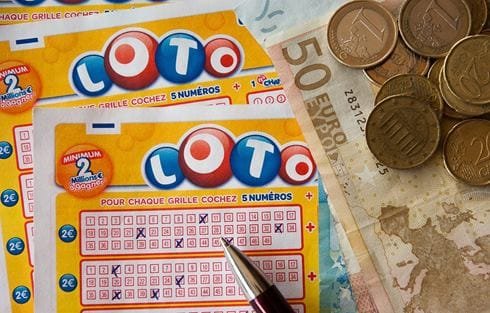The first recorded lottery dates all the way back to around 205 BC. The Chinese Han Dynasty is thought to have begun a nationwide lottery to help finance projects like the Great Wall of China. Today, lotteries are available in a vast number of countries throughout the world, although lotteries are still outlawed in some countries and states. Modern-day lotteries in different countries have some similarities and some differences. Here is a closer look at the key differences between the US lotteries and European lotteries.
United States Lotteries
Although there are no official national lotteries in the United States, there are state lotteries that can be played in most US jurisdictions. Furthermore, the Mega Millions and Powerball lotteries are the two main ones that serve as de facto national lotteries. Players of Mega Millions must match 5 of 70 white balls and the MegaBall from a second-field of 25 numbers. Players of the Powerball lottery select 5 numbers from a set of 69 white balls and 1 number from a set of 26 red balls.
As for state lotteries, they are run in 48 jurisdictions. States that do not have lotteries are Alabama, Utah, Nevada, Hawaii, Alaska, and Mississippi, although legislation looks set to change in the latter soon. Every state offers slightly different game options, so it is important you stay up-to-date with your local games and regulations. Check out this insightful national and state US lotto expert guide for more information.
To participate in any US lottery, you have to be at least 18 years of age. Anyone can purchase a lottery ticket for any state lottery regardless of whether they come from that state. Indeed, you do not need to be a US citizen at all to play state lotteries and claim prize-money should you win. However, different states have different rules regarding winners. For instance, in some states, lottery winners are not allowed to stay anonymous, and some countries have specific laws about how much prizes are taxed and how much money is withheld from winnings. While anyone from any country can play US lotteries, you do need to actually be in the United States to purchase tickets. It is illegal to buy lottery tickets online or via mail, other than in rare exceptions.

Transnational European Lotteries
The biggest European-wide lottery is EuroMillions, which was launched in 2004. The lottery is available to play in the United Kingdom, the Isle of Man, Switzerland, Spain, Portugal, Monaco, Luxemburg, Liechtenstein, Ireland, France, Belgium, Austria, and Andorra. Anyone from any of the participating nations can buy a ticket and is eligible to win, although the minimum age to play depends on your own country’s legislation. In most countries, you need to be at least 18 years of age to play EuroMillions. With the exceptions of Portugal, Spain, and Switzerland, all prizes are tax-free. To play, you select 5 main numbers from between 1 and 50 and 2 Lucky Star numbers from a pool of 12 numbers.
Two other notable transnational lotteries operate in Europe. The Eurojackpot is available in Croatia, Czech Republic, Denmark, Estonia, Finland, Germany, Hungary, Iceland, Italy, Latvia, Lithuania, the Netherlands, Norway, Poland, Slovakia, Slovenia, Spain, and Sweden. To win Eurojackpot, players must correctly match 5 numbers out of 50 and 2 supplementary numbers out of 10. The Vikinglotto game is available in Denmark, Sweden, Norway, Finland, Iceland, Latvia, Lithuania, Estonia, Slovenia, and Belgium. To play the Vikinglotto, players must select 6 main numbers from 1 to 48 and 1 bonus number, called the Viking Number, between 1 and 8.
European Lotteries in Specific Countries
In addition to European transnational lotteries like those above, most European countries operate their own national lotteries. Most lotteries can be played by national citizens and people who are not citizens of the specific countries. Here are some of the most prominent countries with national lotteries in Europe.
The United Kingdom
The UK National Lottery was launched in 1994. In 2002, it was renamed Lotto. To play the main game, you must choose six numbers between 1 and 59 or opt for the Lucky Dip to get 6 randomly selected numbers. The more numbers you match with those drawn, the larger the prize. Since the lottery’s beginning, the minimum age limit has been 16 years of age, but that is due to change in 2021 when the age limit increases to 18 years of age.
Spain
The biggest national lottery in Spain is called Loteria del Niño. It only takes place once a year, on 6 January, shortly after Spain’s other main annual lottery El Gordo de Navidad that takes place prior to Christmas. Players must be at least 16 years of age to play Loteria del Niño. The game is actually more like a raffle than a lottery. Players are issued tickets with a randomly selected 5-digit number. Prize pots are worth hundreds of millions of euros, making the lottery one of the largest in the world. In addition to the top prize, more than 37,000 other prizes are up for grabs.
Germany
Germany offers several lottery games. Its biggest is Lotto 6aus49, which launched in 1974. Players must be 18 years of age to buy a ticket. You choose 6 main numbers between 1 and 49, and an additional number known as the Superzahl, from numbers between 0 and 9. To win the jackpot, you must match all 7 numbers, but other prizes are available for matching as little as 2 main numbers and the Superzahl.







